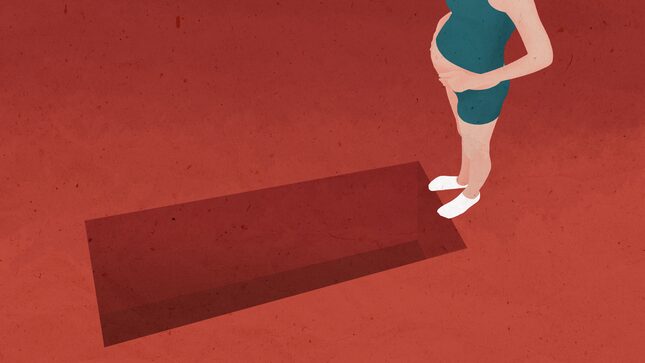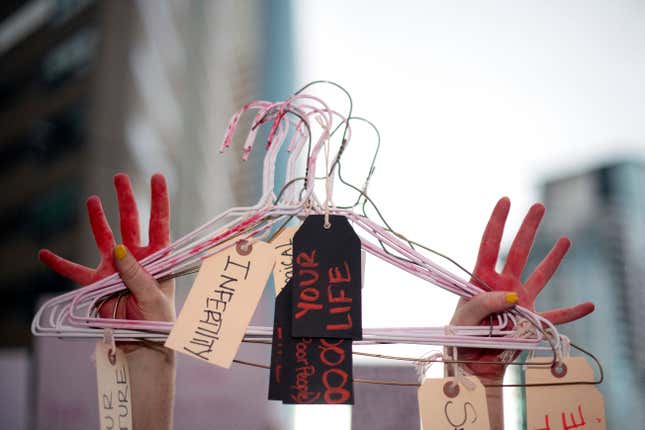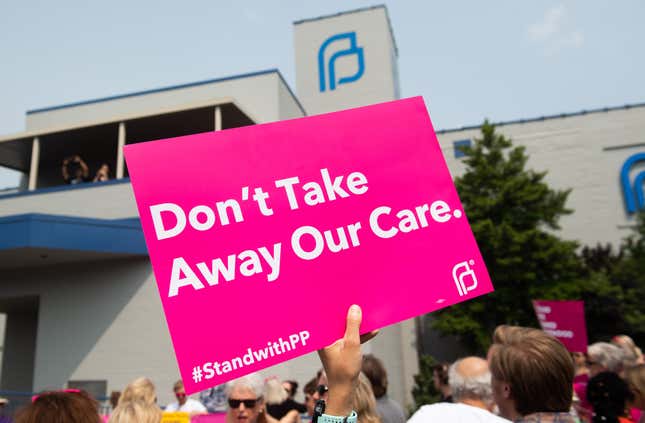Yes, Women Will Die After Roe–From Pregnancy
Abortion bans mean more people will be forced to stay pregnant, the very state of which puts them at great risk in America.
AbortionPolitics
Illustration: Rebecca Fassola
On Friday, a Missouri man was sentenced to life in prison without parole for murdering his wife, Jennifer. Beau Rothwell admitted to killing her in 2019 following a heated argument about his affair with another woman. Jennifer was six weeks pregnant. Police said that, before she went missing, she searched on her cell phone: “what to do if your husband is upset you are pregnant.”
The horrific case highlights how pregnancy is a risk to the lives of women and pregnant people. Untreated miscarriages, dangerous deliveries, and other pregnancy-related health problems contribute to a shockingly high maternal mortality rate in the U.S. This mortality rate doesn’t even take into account homicide: Pregnant women are more likely to be killed, often at the hands of an intimate partner, than they are to die of health problems in America. Jennifer’s death is far from an isolated incident.
After the Supreme Court overturned Roe v. Wade, letting states ban abortion, the risk of people dying because they are pregnant only stands to grow.
There’s been much discussion of the pre-Roe days when people died after unsafe, illegal abortions. Women will die from back-alley abortions, some activists warned after Roe fell last month. Coat hangers are back, their imagery suggested. Unsafe, illegal abortions will—tragically, horribly—still happen, but thanks to safe and effective abortion pills, people will be less likely to seek them out than they were before 1973. The more pressing concern, experts and advocates say, is that women and pregnant people in the U.S. will die from homicide, the physical toll of pregnancy, and being denied emergency care in hospitals—the factors that were already killing pregnant people, only now, more people will be forced to stay pregnant.

“People are gonna get hurt. I think that we are going to see people die and have terrible outcomes from this,” said Nisha Verma, an OB/GYN in Georgia and a fellow with Physicians for Reproductive Health.
Make no mistake: More pregnant women will die without Roe, because in the U.S. we don’t value their lives.
Domestic Violence
“Pregnancy is one of the riskiest times for pregnancy-capable people,” Verma told Jezebel, because intimate partner violence can either worsen during pregnancy or emerge for the first time. Verma said she’s done abortions for people in abusive relationships who would have wanted to continue the pregnancy if it felt safe to do so. She also noted that the landmark Turnaway Study found that people denied abortions were more likely to stay in contact with their violent male partners than people who got an abortion. “It’s definitely a concern that people will be forced to continue pregnancies that put them at risk of escalating violence, or will continue to be forced to be tied to that person.”
Healthcare providers need more training on identifying when their patients are experiencing intimate partner violence and helping them access potentially life-saving services, said Alise Powell, senior policy analyst at the National Birth Equity Collaborative.
-

-

-

-

-

-

-

-

-

-

-

-

-

-

-

-

-

-

-

-

-

-

-

-

-

-

-

-

-

-

-

-

-

-

-

-

-

-

-

-









































